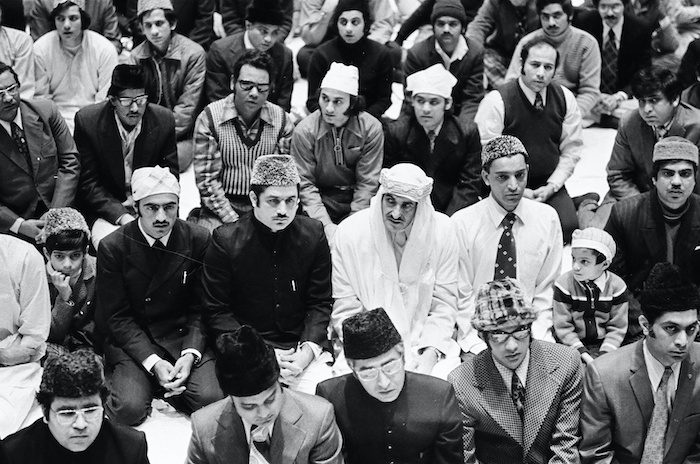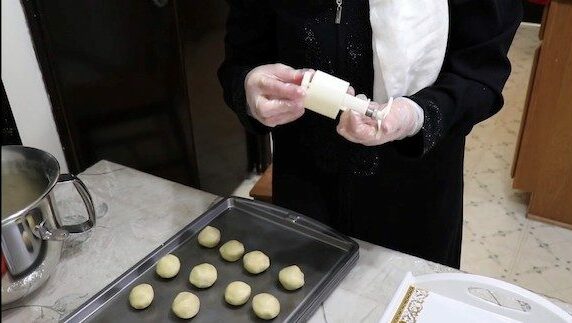
Muslims observe Eid al-Adha, the Feast of the Sacrifice, at McCormick Place, 2301 S. King Dr., Chicago, January 4, 1974. ST-10104873-0006, Chicago Sun-Times collection, CHM.
Eid al-Adha, or the Festival of the Sacrifice, is the second Eid holiday celebrated annually by Muslims worldwide, with the date falling in the twelfth and final month of the Islamic lunar calendar, Dhul Hijjah. The holiday commemorates the Prophet Ibrahim’s (Abraham) willingness to sacrifice his son Ismail (Ishmael) and to mark the occasion of the final day of the annual Hajj (pilgrimage) of Muslims to Islam’s holiest sites in modern-day Mecca and Medina, Saudi Arabia.
Arab Muslims often make ma’amoul (nut- or date-filled cookies) for religious holidays such as Eid al-Adha. In Chicago, refugee women from the Syrian Community Network (SCN) started The Sweet Syrian to create and sell ma’amoul and many other sweet and savory pastries. Dr. Bana Ahdab, a SCN board member, remarked, “People are liking it [Sweet Syrian’s baked goods], and so we start selling and little bit by little we got bigger.”

Women from The Sweet Syrian make ma’amoul, 2019. Photograph courtesy of The Sweet Syrian.
In her interview for the Chicago Muslim Oral History Project, Dr. Ahdab talks about her life in Syria, journey to Chicago, and work with The Sweet Syrian. Listen now.
The Chicago Muslim Oral History Project at our Studs Terkel Center for Oral History, is an ongoing oral history interview process in which staff, interns, and volunteers have collected nearly 150 oral histories since 2016. Interviewees have shared their stories of faith, identity, and personal journeys.